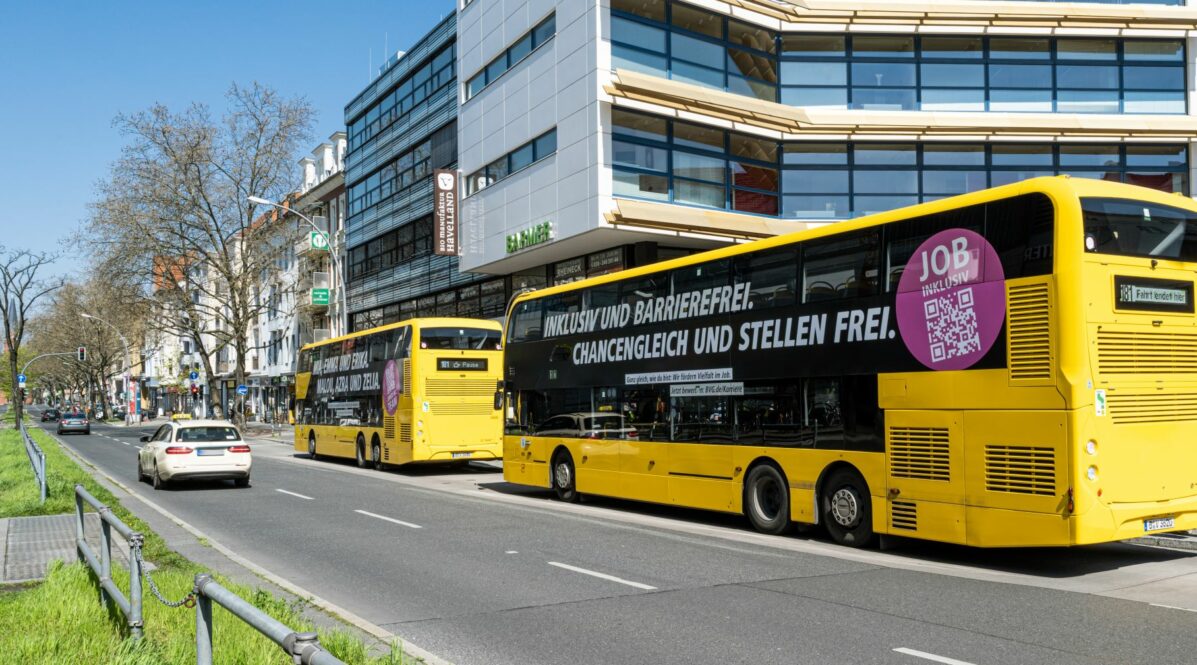
- This event has passed.
Semesterticket – Not Available For All Students
Around 200,000 students in Berlin will pay less for bus and train travel in the coming semester. Instead of 32.30 euros per month for Berlin ABC, they will only have to pay 29.40 euros per month and can travel throughout the country with the Germany semester ticket. Provided they are studying full-time.
“Some student groups are suddenly no longer entitled to a semester ticket, even though they have always been,” explain Erik and Eske, who are responsible for ecology and environmental protection at the Asta of Humboldt-Universität (HU). Criticism has also come from the student representatives of the other two large Berlin universities, the Asta of the Technical University (TU) and the Free University (FU).
The list of groups of people who, unlike with the semester ticket, do not receive a student discount with the Deutschlandticket is long. In addition to doctoral students, the new regulation also affects students on certificate, supplementary, additional, and postgraduate courses, part-time students, students on distance learning courses, and students on leave of absence.
According to the student representatives, it is unfair that these groups are now being financially burdened. Many doctoral students have a temporary part-time employment contract. Some are not employed at all but are financing their doctorate with savings, loans, or scholarships.
Several groups are excluded from the ticket
Kimberly Hartl is doing her doctorate at the HU and, like the majority of her fellow students, is dependent on a monthly ticket. “Ever since I enrolled, I’ve used the semester ticket every day to travel to work or attend classes,” she says. Hartl not only works at the Charité in Wedding but also at the Max Delbrück Center and sometimes has to travel to its main site in Buch.
As a result of the new regulations, she has to get either the Jobticket for 34.30 euros per month, the Deutschlandticket for 49 euros, or the Umweltkarte for 71.40 euros from the Verkehrsverbund Berlin-Brandenburg (VBB). All of these options are more expensive than the Deutschland-Semesterticket, and not all doctoral students are entitled to a job ticket. Hartl is also annoyed that she was not informed about the change in advance. She had inquired with the Asta early on but only received an official email from the HU on January 22. At that point, she still had four weeks to come up with a solution and plan for the new costs.
The student representatives want to lobby the VBB to ensure that all enrolled students are once again entitled to the Germany-wide semester ticket. Negotiations with the transport associations are being conducted by the student committees. The HU-Asta reports that the VBB has not yet responded to the criticism. Gabriel Tiedje and Jehona Aliu from the TU-Asta also complain that the VBB does not respond enough to student interests. The current point of contention is at least being discussed. According to Tiedje, however, there is no prospect of any change for the coming semester, as feedback is already being received and the ticket for the new semester will be paid for in advance with the tuition fees. The VBB responded evasively when asked. The association is in close contact with the universities regarding the Deutschland-Semesterticket. “Some of the universities’ interests can now be incorporated following joint consultation, but not all wishes can be implemented,” said a press spokeswoman.
Hartl hopes that a change will come soon. As a doctoral student representative at the Institute of Biology at HU, she has now sent an open letter to the university management – in the hope that there will be a semester ticket for all students again for the next winter semester.

[Source: Tagesspiegel ePaper by Ella Strübbe | Translated by Deeple]
